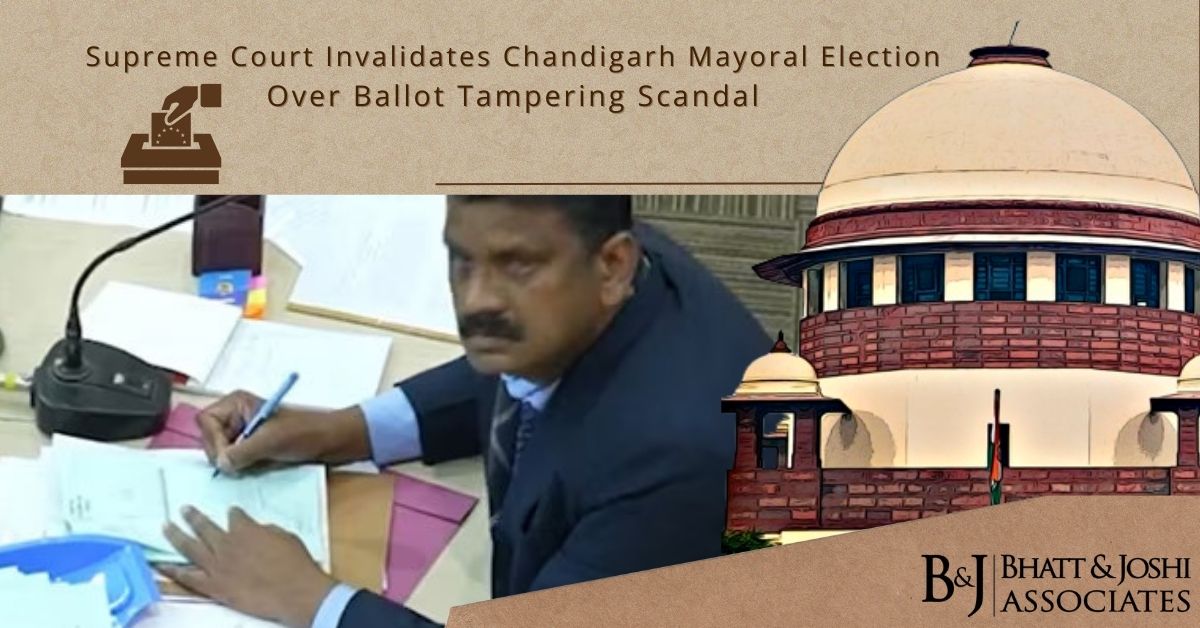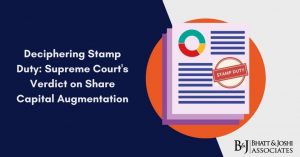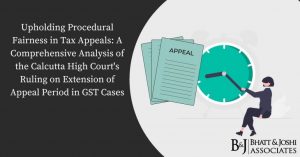Chandigarh Mayoral Election Nullified by Supreme Court Over Ballot Tampering Scandal
Introduction
In a significant and unprecedented decision, the Supreme Court of India has nullified the Chandigarh mayoral election, overturning the victory of Bharatiya Janata Party (BJP) candidate Manoj Sonkar as the mayor of the Chandigarh Municipal Corporation. The three-judge Bench, led by Chief Justice of India Dr D.Y. Chandrachud, took a strong stance against the unlawful actions of the returning and presiding officer, Anil Masih, who was found to have tampered with ballot papers during the counting process.
Invalidation of Ballots and Election Quashed
The Supreme Court held that Anil Masih had unlawfully altered the course of the mayoral elections by invalidating eight ballot papers cast in favor of the Aam Aadmi Party (AAP) candidate, Kuldeep Kumar. While refraining from quashing the entire election process, the Bench invoked its inherent power under Article 142 of the Constitution to treat the eight wrongly invalidated ballots as valid. As a result, AAP’s Kuldeep Kumar was declared the duly elected mayor of the municipal corporation with 20 votes, surpassing the BJP candidate’s 16 votes.
Show Cause Notice and Criminal Prosecution for Anil Masih
The Bench issued a show cause notice to Anil Masih, asking him to explain why he should not be prosecuted for perjury. Masih had initially admitted to putting marks on eight ballot papers but claimed it was due to defacement. However, upon physical verification, the court found no evidence of defacement, leading to doubts about Masih’s credibility. The court ordered criminal prosecution against Masih under section 340 of the Code of Criminal Procedure for allegedly making false statements.
Background of the Chandigarh Mayoral Election Case
The controversy began earlier this month when the Supreme Court criticized Anil Masih for defacing ballot papers in favor of the BJP candidate, calling it a “mockery of democracy.” The court ordered the sequestration of the entire record of the Chandigarh mayor elections and deferred a scheduled municipal corporation meeting. AAP candidate Kuldeep Kumar had filed a petition against the Punjab and Haryana High Court’s refusal to grant interim relief in the case.
Allegations of Ballot Tampering and Video Evidence
Kumar alleged that Masih tampered with ballot papers during the counting process, as seen in a widely reported video. The video showed Masih marking ballot papers with a pen, leading to the invalidation of eight votes for Kumar. Despite raising concerns in the Punjab and Haryana High Court, Kumar received no interim relief, prompting him to approach the Supreme Court.
Supreme Court’s Strong Criticism and Verdict
The Supreme Court strongly criticized Masih’s actions, declaring them a “serious misdemeanour.” The court emphasized that Masih had unlawfully altered the mayoral election and expressed falsehood in his statement before the court. The verdict not only invalidated the election results but also exposed Masih’s deliberate efforts to favor the BJP candidate.
Chandigarh Mayoral Election: Safeguarding Democracy – Conclusion
The Supreme Court’s decision to nullify the Chandigarh mayoral election underscores the importance of upholding democratic principles and fair electoral processes. The court’s strong stance against ballot tampering and its commitment to preserving the integrity of elections send a clear message about the consequences of electoral misconduct. The case serves as a reminder that any attempts to undermine the democratic process will face severe legal scrutiny and consequences.










